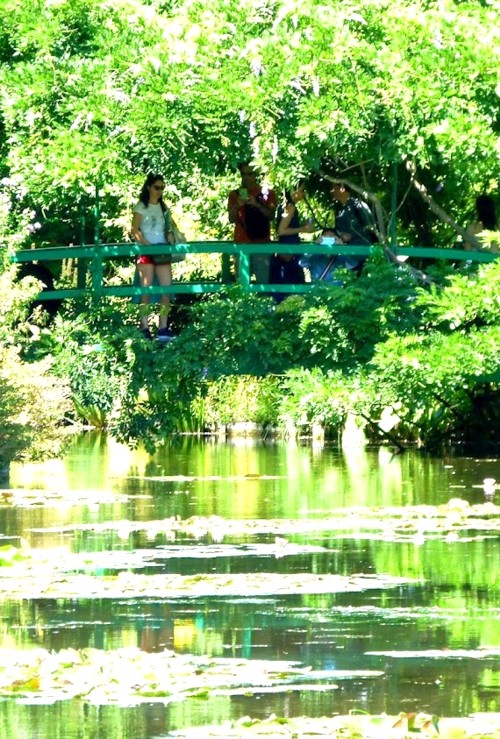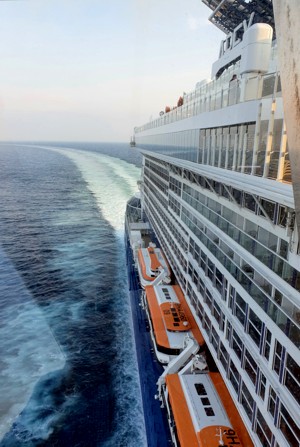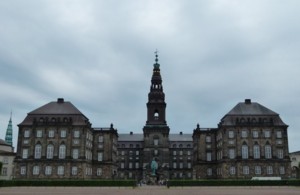Europe

- Details
- Written by: Richard_McKie
- Parent Category: Travel
- Category: Europe
- Hits: 1706
In July and August 2022 Wendy and I travelled to Europe and to the United Kingdom (no longer in Europe - at least politically).
This, our first European trip since the Covid-19 pandemic, began in Berlin to visit my daughter Emily, her Partner Guido, and their children, Leander and Tilda, our grandchildren there.
Part 1 of this report touched on places in Germany then on a Baltic Cruise, landing in: Denmark, Finland, Estonia, Latvia, Sweden and the Netherlands. Read more...
Now, Part 2 takes place in northern France. Part 3, yet to come, takes place in England and Scotland.

- Details
- Written by: Richard_McKie
- Parent Category: Travel
- Category: Europe
- Hits: 3103
In July and August 2022 Wendy and I travelled to Europe and to the United Kingdom (no longer in Europe - at least politically).
This, our first European trip since the Covid-19 pandemic, began in Berlin to visit my daughter Emily, her Partner Guido, and their children, Leander and Tilda, our grandchildren there.
Part 1 of this report touches on places in Germany then on a Baltic Cruise, landing in: Denmark, Finland, Estonia, Latvia, Sweden and the Netherlands. Part 2 takes place in northern France; and Part 3, to come later, in England and Scotland.
- Details
- Written by: Richard_McKie
- Parent Category: Travel
- Category: Europe
- Hits: 20210
In September 2019 we left Turkey by air, to continue our trip north along the Adriatic, in the Balkans, to Austria, with a brief side trip to Bratislava in Slovakia.
'The Balkans' is a geo-political construct named after the Balkan Peninsula between the Adriatic and the Black Sea.
According to most geographers the 'Balkans' encompasses the modern countries of Albania; Bosnia and Herzegovina; Bulgaria; Croatia; Greece; Kosovo; Montenegro; North Macedonia; Serbia; and Slovenia. Some also include Romania.

- Details
- Written by: Richard_McKie
- Parent Category: Travel
- Category: Europe
- Hits: 57338
In October 2018 we travelled to Ireland. Later we would go on to England (the south coast and London) before travelling overland (and underwater) by rail to Belgium and then on to Berlin to visit our grandchildren there.
The island of Ireland is not very big, about a quarter as large again as Tasmania, with a population not much bigger than Sydney (4.75 million in the Republic of Ireland with another 1.85 million in Northern Ireland). So it's mainly rural and not very densely populated.
It was unusually warm for October in Europe, including Germany, and Ireland is a very pleasant part of the world, not unlike Tasmania, and in many ways familiar, due to a shared language and culture.

- Details
- Written by: Richard_McKie
- Parent Category: Travel
- Category: Europe
- Hits: 9941
In the seventies I spent some time travelling around Denmark visiting geographically diverse relatives but in a couple of days there was no time to repeat that, so this was to be a quick trip to two places that I remembered as standing out in 1970's: Copenhagen and Roskilde.
An increasing number of Danes are my progressively distant cousins by virtue of my great aunt marrying a Dane, thus contributing my mother's grandparent's DNA to the extended family in Denmark. As a result, these Danes are my children's cousins too.
Denmark is a relatively small but wealthy country in which people share a common language and thus similar values, like an enthusiasm for subsidising wind power and shunning nuclear energy, except as an import from Germany, Sweden and France.
They also like all things cultural and historical and to judge by the museums and cultural activities many take pride in the Danish Vikings who were amongst those who contributed to my aforementioned DNA, way back. My Danish great uncle liked to listen to Geordies on the buses in Newcastle speaking Tyneside, as he discovered many words in common with Danish thanks to those Danes who had settled in the Tyne valley.
Nevertheless, compared to Australia or the US or even many other European countries, Denmark is remarkably monocultural. A social scientist I listened to last year made the point that the sense of community, that a single language and culture confers, creates a sense of extended family. This allows the Scandinavian countries to maintain very generous social welfare, supported by some of the highest tax rates in the world, yet to be sufficiently productive and hence consumptive per capita, to maintain among the highest material standards of living in the world.
